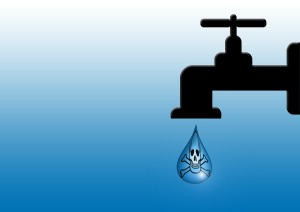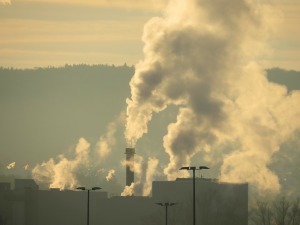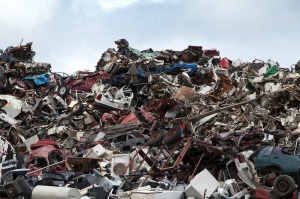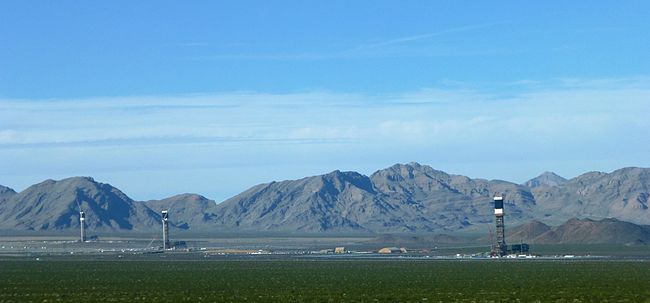The world that we know today – our home is also home to millions of other species of animals, insects, plants, microbes, and other living and non living things, is really a place of wonder. It’s really amazing to see how biologically diverse life on earth is. A lot of the animals, plants and micro-organisms depend on each other to create an ecological balance. However, we are constantly causing disturbances to the nature and the ecological balance on the globe with our advancement in civilization and our ecological footprints on the globe. There is a growing concern among scientists and environmentalists around the world regarding our carbon footprint, depletion of the environment and using up world’s natural resources, causing serious issues like global warming, climatic changes, sea level rise, and depletion of the earth’s protective ozone layer.
Top 5 environmental concerns
From pollution to sea level rise, environmental issues affect all living beings on this globe. The growing evidence suggests that we humans have been causing serious damage to the globe ever since the beginning of the industrial revolution. We humans have been using up all the earth’s natural resources, and we have been causing imbalances in nature and the ecosystem. If the current trend continues, we will have more devastating consequences in the future. Below are top 5 environmental concerns
1. Contamination of drinking water
 Contamination of fresh household drinking water ranks at the top of list of public concern around the globe. It is also the Americans’ Top Green Concern. Fifty-nine percent of those who participated in polls said that they worry “a great deal” about clean drinking water. The need for clean drinking water and water for household needs will continue to increase as the global population rises and continues to move to cities. Pollution to the rivers, lakes, reservoirs and even oceans rank number one on the public concern list. Concerns and issues also include oil spills, acid rain, urban runoff, ocean dumping, ocean acidification, and waste water. It shows that the general American population is more concerned about clean drinking water and household running water than any other element of the environment in the United States.
Contamination of fresh household drinking water ranks at the top of list of public concern around the globe. It is also the Americans’ Top Green Concern. Fifty-nine percent of those who participated in polls said that they worry “a great deal” about clean drinking water. The need for clean drinking water and water for household needs will continue to increase as the global population rises and continues to move to cities. Pollution to the rivers, lakes, reservoirs and even oceans rank number one on the public concern list. Concerns and issues also include oil spills, acid rain, urban runoff, ocean dumping, ocean acidification, and waste water. It shows that the general American population is more concerned about clean drinking water and household running water than any other element of the environment in the United States.
2. Soil contamination
Adding pollutants and contamination to the soil is also a big matter of concern around the globe today. In a series of Gallup polls from 1997 to 2008, about 50% of Americans are concerned about the contamination of soil through improper use of pesticides, waste, and soil pollution.
3. Air pollution
 Air is an essential element for all living and breathing organisms. All living things including plants, animals, and most micro-organisms need air, and would not survive without it. An average person needs over 3,000 gallons of air each day for breathing. If the level of pollutants in air increases, it could have serious health impacts and cause lungs diseases, and other serious health issues.
Air is an essential element for all living and breathing organisms. All living things including plants, animals, and most micro-organisms need air, and would not survive without it. An average person needs over 3,000 gallons of air each day for breathing. If the level of pollutants in air increases, it could have serious health impacts and cause lungs diseases, and other serious health issues.
“Air pollution can damage trees, crops, other plants, lakes, and animals. In addition to damaging the natural environment, air pollution also damages buildings, monuments, and statues. It not only reduces how far you can see in national parks and cities, it even interferes with aviation.”(US EPA)
US EPA also states that the six most common pollutants in air are as follows:
Some of the developing nations in Asia are causing more damage and contributing to air pollution today by setting up new industries. Forty percent of the US population is concerned about outdoor and indoor air quality, carbon emissions, particulate matter, volatile organic compounds, sulfur oxides, tropospheric ozone, refrigerants, radon and methane emissions.
4. Conservation of wildlife
Issues like extinction of wildlife, endangered species of plants and animals, coral bleaching, poaching, and loss of natural animal habitats that can result in relocation or migration of animals, loss of species, and vegetation and break in the food chain and ecosystem. More than 40 percent of Americans expressed concern about wildlife conservation and associated environmental issues.
5. Waste
 Waste including litter, chemical spills, landfill waste, fossil fuel leakage, water wastage, food waste, and more can lead to more pressure on the environment and natural resources. More than half of food is wasted in the United States, while there are millions of hungry people around the globe. Wasting materials can put pressure on mining for new materials. Recycling and using less fossils and more reusable energy resources, as well as recycling as much as possible will address some of the issue related to wastage.
Waste including litter, chemical spills, landfill waste, fossil fuel leakage, water wastage, food waste, and more can lead to more pressure on the environment and natural resources. More than half of food is wasted in the United States, while there are millions of hungry people around the globe. Wasting materials can put pressure on mining for new materials. Recycling and using less fossils and more reusable energy resources, as well as recycling as much as possible will address some of the issue related to wastage.
Take Actions
We need to work together and build sustainable communities, reduce our reliance on fossils, reduce carbon footprints, use less energy and fewer resources, avoid wasting food, support local farmers and merchants, use sustainable products without harsh chemicals and encourage green practices.
This is the only world we’re going to have, so it’s the responsibility of every individual to ensure that we keep it in the best possible shape we can, so that it supports life for many years to come for our future generations. We have to ensure that the resources we use are regenerated, and do not impact the globe in a negative way. The things that we enjoy today, the species that are present today, and the resources that we have, should also be available in the future.
P.S: You must take action now to reduce impacts on the planet and also to educate others to take action. Please add your comments below in the comment box and don’t forget to share.



